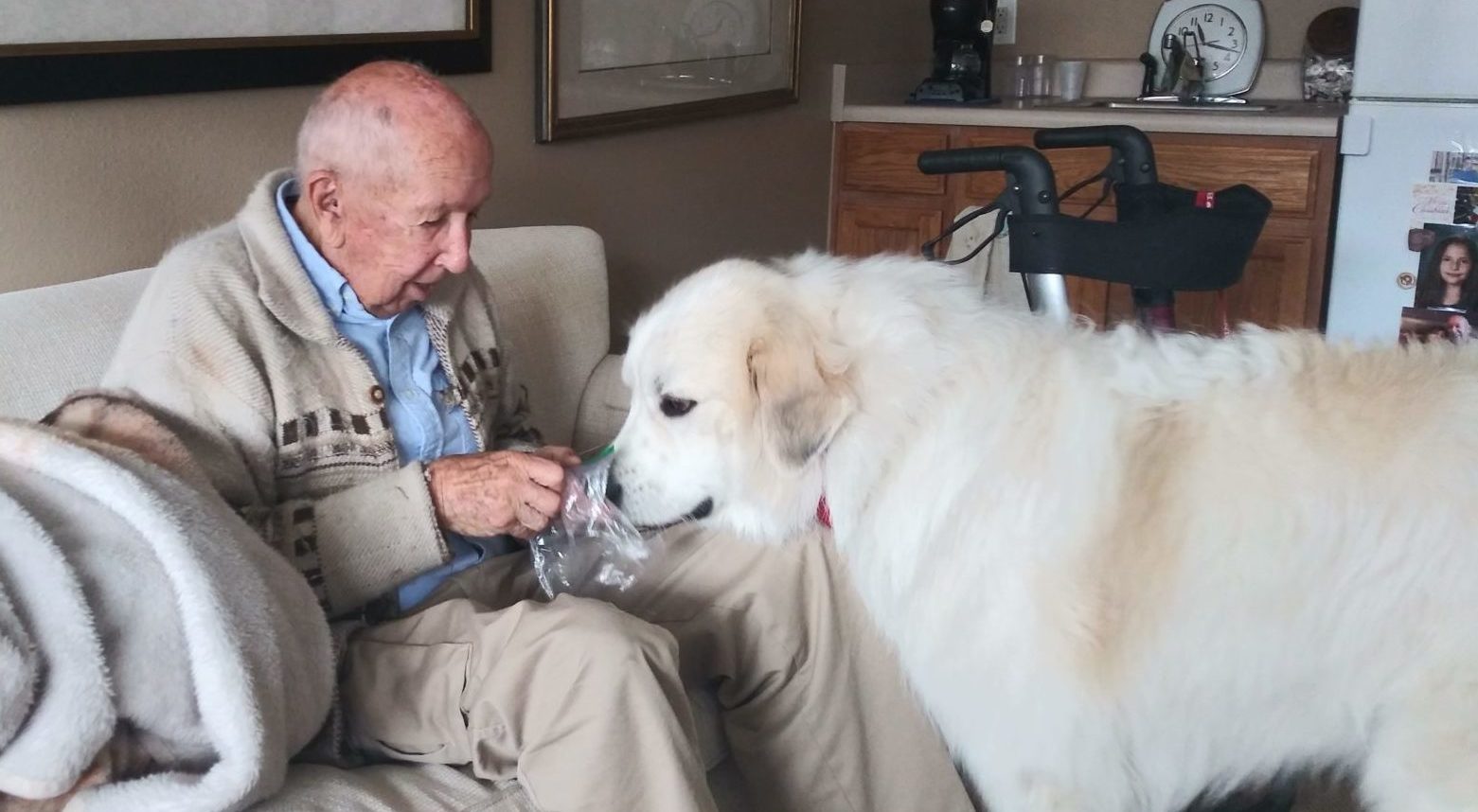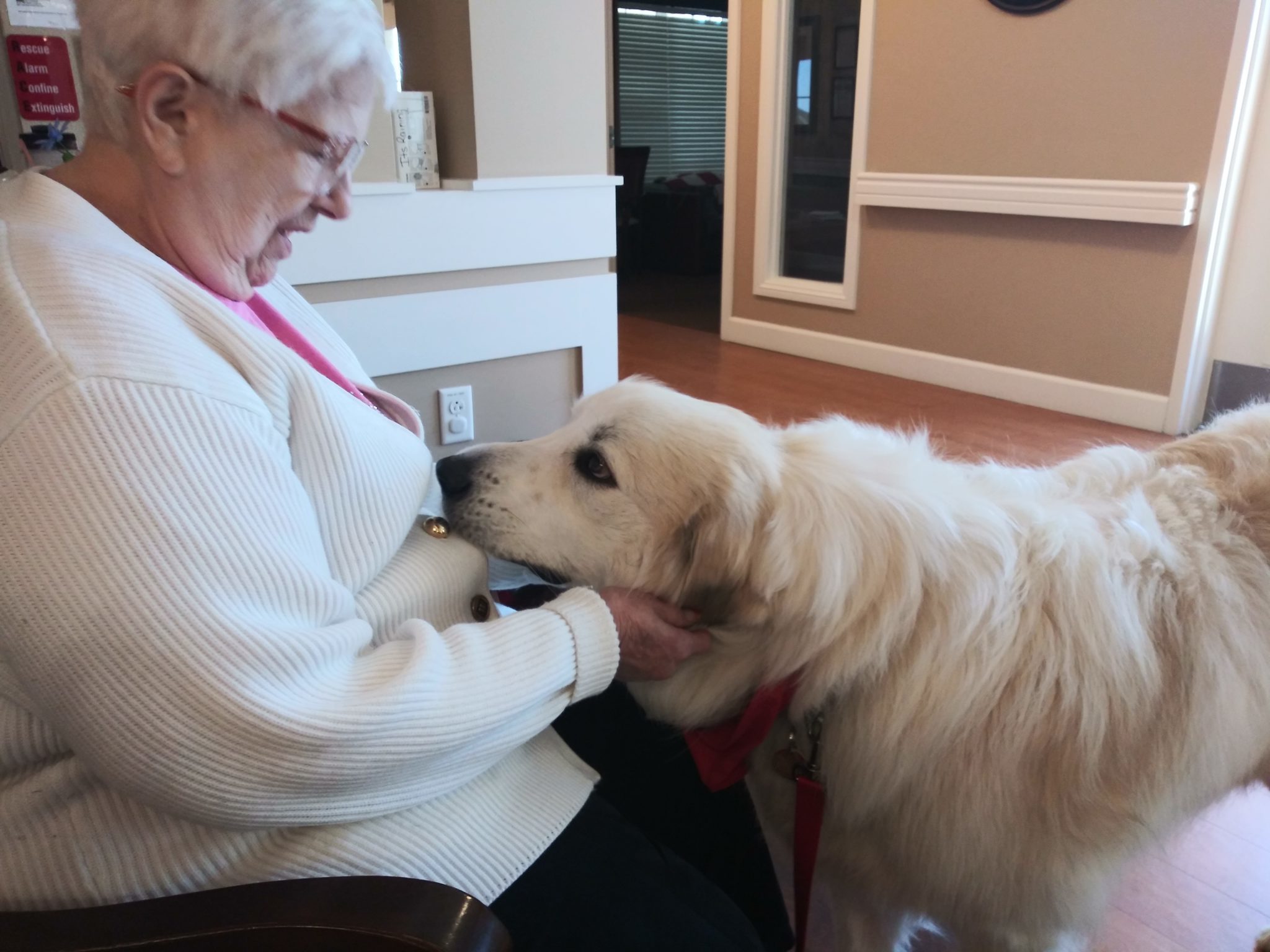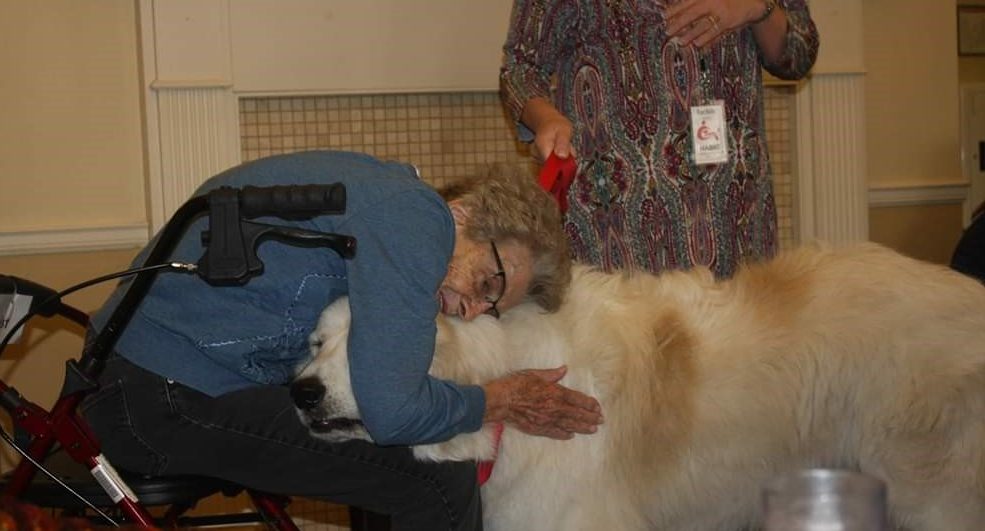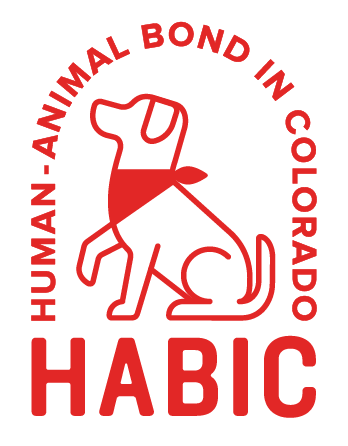 Sometimes animals have a special talent, like people do, that leads them to a new purpose.
Sometimes animals have a special talent, like people do, that leads them to a new purpose.
Sophie is a Great Pyrenees, known as a ‘large, thickly coated, and immensely powerful working dog bred to deter sheep-stealing wolves and other predators on snowy mountaintops,’ according to the AKC.
“She probably would have failed at that,” said Jaqueline Rusho, Sophie’s owner and handler, contrasting their work together as a Human-Animal Bond in Colorado – HABIC volunteer team. “She’s the most sensitive and intuitive animal I’ve ever had.”
 In fact, prior to the Covid-19 pandemic, Sophie’s specialty was developing powerful connections with elderly residents of the Mirasol senior community in Loveland.
In fact, prior to the Covid-19 pandemic, Sophie’s specialty was developing powerful connections with elderly residents of the Mirasol senior community in Loveland.
“It’s difficult to explain the connection I see with Sophie and the residents,” said Rusho. “It rather has to be witnessed. Great Pyrenees were bred to guard livestock; she loves people and the comforts of her home. But I do believe the breed has a heightened awareness of their surroundings, and in her case she shines with people and their needs.”
Research suggests that therapy animal visits make a difference. “It can have significant benefits for individuals in long-term care facilities,” said HABIC Postdoctoral Research Fellow Kerri Rodriguez, “including improvements to loneliness, mental health, and emotional well-being.”
From stray dog to sensitive and perceptive therapy animal
 “Sophie was a foster from Texas,” Rusho said. “She was found as a stray. We’re guessing she’s now about five years old.”
“Sophie was a foster from Texas,” Rusho said. “She was found as a stray. We’re guessing she’s now about five years old.”
Rusho has fostered six Great Pyrenees over the years. “Pyrenees typically have a two-coat system,” she said. “Sophie arrived with a single coat, 73 pounds, and needing to be groomed. She matured to weigh 110 pounds and a beautiful double coat.”
“It became apparent quickly that she was very smart and gentle,” Rusho said. “A reliable fellow foster said she’d make a great therapy dog.”
Rusho had witnessed animal-assisted therapy before, during her 25-year career as a librarian at Carrie Martin Elementary in Loveland. “At one time, I even considered a career in music therapy,” she said.
After retiring, Rusho sought to continue to make a difference in her community, and decided to try volunteer work with Sophie. “I chose HABIC due to recommendations, and many of my canine fosters spent time at CSU for medical needs. I appreciate the respect CSU programs have for animals.”
Special connection with memory care patients
 Rusho and Sophie became a HABIC-certified team in 2018. They were assigned to work with long-term care residents at Mirasol. It was a perfect fit for Sophie, who made a special impression on some.
Rusho and Sophie became a HABIC-certified team in 2018. They were assigned to work with long-term care residents at Mirasol. It was a perfect fit for Sophie, who made a special impression on some.
“I noticed in particular her interaction with memory patients,” said Rusho. “There were many residents who interacted with Sophie, but the memory patients focused on her. They would be more animated. Sophie was also more intense. She seemed to use more eye contact and was very alert.”
“One resident in particular, who was experiencing late-stage dementia, would smile when he saw Sophie coming and loved petting her,” said Rusho. “Sophie would constantly push his hand as she does with me.”
Due to the pandemic, Rusho and Sophie have been unable to visit Mirasol since last year, and the patient passed away in the interim. “His wife send me a lovely note thanking us, as she knows he loved the visits,” Rusho said. “There was truly a special connection. Sophie would sit patiently next to him and stare.”
Rusho hopes to return to working with Sophie as a HABIC team as soon as the pandemic restrictions are lifted by long-term care facilities.
“Working with Sophie has been a win-win. Sophie loves people and truly makes a difference with her interaction,” Rusho said. “Thank you HABIC, for teaching Sophie and myself that we have a purpose. Her excitement when she sees the red HABIC bag and the happy faces of people who meet her is such a joy.”
 About Human-Animal Bond in Colorado
About Human-Animal Bond in Colorado
Founded in 1993, Human-Animal Bond in Colorado (HABIC) is a center in the School of Social Work, part of CSU’s College of Health and Human Sciences. HABIC’S mission is to improve the quality of life for people of all ages through the therapeutic benefits of companion animals, with particular focus in the areas of community outreach, teaching, and research.